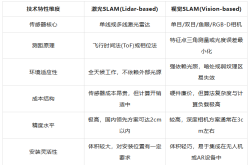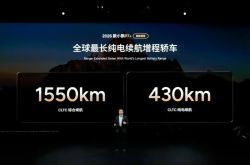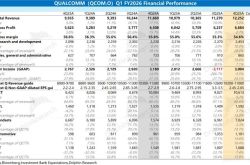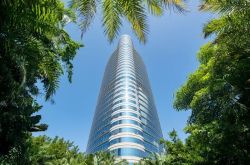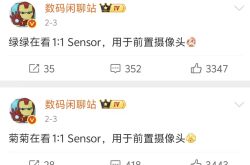Another WM Motor? The Tumultuous Journey of Nezha and Other Auto Brands
![]() 12/16 2024
12/16 2024
![]() 515
515
Bay Harbor Business Observer — Li Lei
As early as February 25, just over a month after the Lunar New Year in 2023, Bay Harbor Business Observer's article "Bay Harbor Weekly Review | Don't Become the Next WM Motor" starkly warned: WM Motor is not the first, nor will it be the last.
Nearly two years have passed since then, and WM Motor remains mired in adversity.
During this period, prominent automotive brands have unfortunately followed in WM Motor's footsteps.
Shortly after the Lunar New Year in 2024, HiPhi announced a six-month production halt. Founder Ding Lei conceded that he had little to say about the company's predicament and apologized to his employees. "The next three months will be exceptionally challenging for HiPhi. I barely slept for 24 hours. The past few months have been my lowest point. I've been caught in a misunderstanding and couldn't compete with the internet using traditional business strategies," he lamented.
From the beginning to the end of the year, following HiPhi's woes, another renowned brand in trouble emerged: Nezha Auto.
In terms of market influence, Nezha and WM Motor are significantly more recognized by consumers than the high-end priced HiPhi.
Founded in 2014, Tianyancha records show that Nezha Auto has secured 15 rounds of financing, including 5 billion yuan in mid-April this year and another 1.3 billion yuan on September 20th.
Earlier, on March 20th, Nezha Auto also received a subsidy of 200 million Hong Kong dollars from the Hong Kong government and participated in cornerstone round investments of 200 million US dollars.
While seeking funds, Nezha Auto also aimed to gain investor recognition through listing, submitting a prospectus to the Hong Kong Stock Exchange on June 26th this year.
Typically, if a company fails to list by the end of December, six months after submission, it signifies that Nezha Auto must persist in its efforts.
However, at this juncture, Nezha Auto indeed confronts a financial crisis, a truly precarious situation.
Starting in September, Nezha Auto implemented a salary reduction plan: a 30% cut for annual salaries exceeding 1 million yuan, 20% for 500,000-1 million yuan, 10% for 300,000-500,000 yuan, and 5% for below 300,000 yuan. If an employee's actual salary exceeds their "position salary," an additional 10% reduction applies.
By November, multiple sources, including Caixin Global, reported that Nezha Auto had initiated large-scale layoffs. An anonymous internal source revealed that some layoff rates indeed reached 70%. The current compensation plan is N+1, with payments to be made within 60 working days. The company had only paid half of September's salaries, and it was uncertain whether October's salaries would be disbursed.
Amidst rumors that Nezha Auto's co-founder and CEO Zhang Yong would resign, the company finally announced on December 6th that due to strategic adjustments, Zhang Yong would step down as CEO and transition to a company advisor role. Nezha Auto's founder and chairman Fang Yunzhou would concurrently serve as the company's CEO.
Fang Yunzhou issued a company-wide letter, reflecting on the company's decade-long entrepreneurial journey. He frankly apologized for Nezha's current difficulties and acknowledged his "primary responsibility."
Fang Yunzhou outlined six major reform measures, including embracing a "people-oriented" approach, respecting talent, promoting an employee shareholding plan, optimizing organizational structure for efficiency, streamlining middle and back offices, reducing administrative costs, promoting youth, reforming organizational mechanisms, reshaping corporate culture, and focusing on overseas markets with products that meet market expectations and positive gross margins.
According to Nezha Auto's June prospectus to the Hong Kong Stock Exchange, from 2021 to 2023, Nezha Auto generated revenues of 5.087 billion, 13.0496 billion, and 13.555 billion yuan, respectively, with net losses of 4.84 billion, 6.666 billion, and 6.867 billion yuan, respectively, amounting to a cumulative loss of 18.373 billion yuan over three years. Gross margins were -34.4%, -22.5%, and -14.9%, respectively.
Aggressively burning capital to secure market share poses a significant challenge for all new energy vehicles. This money-losing competitive strategy drags them into a deep abyss. Who can better control costs, burn less money, or efficiently utilize funds while steadily selling more and better products will determine their path and prospects. In this context, BYD and Xiaomi Automobile's successes are undeniable. BYD, with its deep industry experience and extensive supply chain, and Xiaomi Automobile, a rising star with Lei Jun's innovative strategies, stand out.
As peers grapple with profound challenges, WM Motor and Nezha face a tumultuous fate. This desperation arises just before the dawn of hope, as both companies encounter crises while rushing to go public.
Moreover, besides being star investment projects, these companies' founders are seasoned veterans in the automotive industry.
WM Motor's founder Shen Hui is renowned for helping Geely complete China's largest overseas automotive acquisition, acquiring Volvo, earning him the title of "the first person to globalize China's automotive industry." Holding degrees from UCLA and the Carlson School of Management, Shen Hui became Li Shufu's right-hand man, reaching industry pinnacles with a global perspective, fueling his ambition to transcend the role of an assistant.
Public information shows that Zhang Yong, Nezha Auto's co-founder and former CEO, studied Automobile and Tractor Engineering at Hefei University of Technology from 1994 to 1998. From 2008 to 2018, he worked at BAIC BJEV, overseeing channel development, marketing, after-sales service, and brand promotion. In 2017, he led BAIC BJEV to a historic sales milestone of 100,000 units annually, becoming the global sales champion for pure electric vehicles. In 2018, he joined Nezha Auto as co-founder and CEO, overseeing strategic management.
Fang Yunzhou, Nezha Auto's founder and chairman, previously served as Deputy General Manager of Chery New Energy, responsible for electric vehicle testing, R&D, and project hosting. Under his leadership, Chery New Energy became China's first profitable new energy company in 2012. Two years later, he founded the Nezha Auto brand.
In terms of ability, industry experience, and investor favorability, WM Motor and Nezha are not inferior to any rising stars. However, the fiercely competitive industry has tested them severely, and they have struggled to endure the relentless passage of time and peer competition.
Recently, another automaker, Jiyue, has also encountered issues. Despite being backed by renowned giants Geely Group and Baidu, with significant resource advantages, the company announced mass layoffs.
Since WM Motor's struggles two years ago, China's automotive industry has undergone rapid upheaval. The industry is now at a halfway point, with more intense elimination rounds yet to come. Did HiPhi, Nezha, and Jiyue deeply reflect and heed warnings from WM Motor's experience? Perhaps they did, perhaps not enough—the outside world doesn't know. Nevertheless, surviving and thriving in this fiercely competitive industry has always been a daunting task requiring numerous correct choices. Failure can often be attributed to overlooked details. Bay Harbor Business Observer has emphasized that WM Motor's plight and vitality are valuable business lessons, applicable to Nezha and Jiyue as well.
A company's ability to introspect is crucial. Understanding which abilities contributed to success or good performance and deeply reflecting on failures during significant crises is essential. This is also a vital topic in business schools, as understanding failure is, in a sense, more critical than understanding success. (Produced by Bay Harbor Finance)

